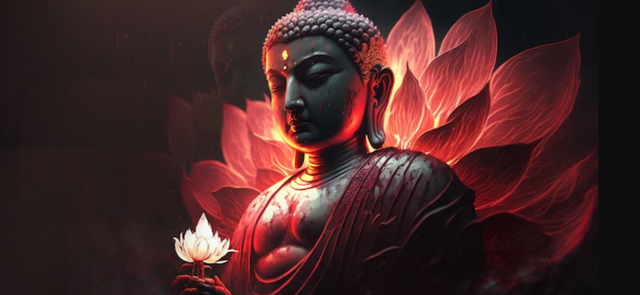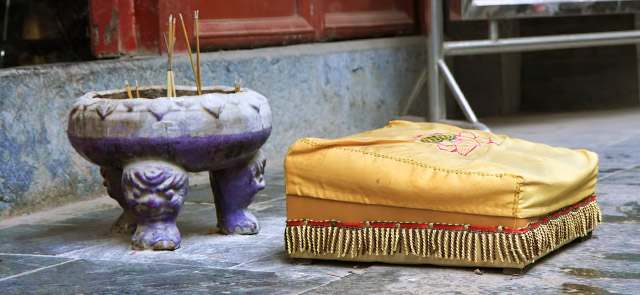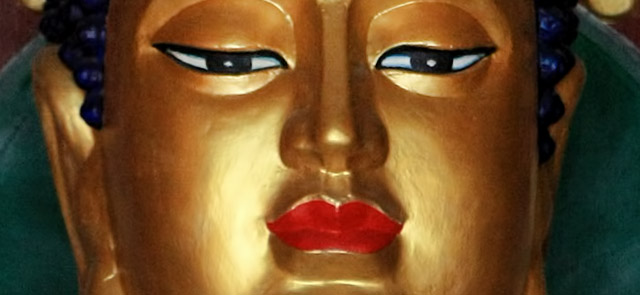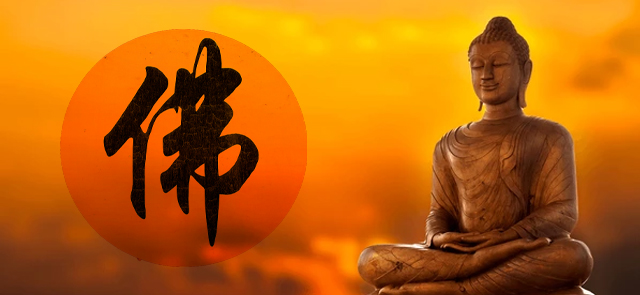Mantras [Chin.: zhēnyán 真言 | Sanskr.: धारणी - dhāraṇī] are an important aspect of Buddhism, particularly in the Mahayana tradition [Chin.: Dàchéng chuántǒng 大乘传统]. Mantras are sacred sounds, words, or phrases that are believed to have spiritual and transformative power [Chin.: Biàngé lì 变革力] when chanted or recited. These mantras are often associated with specific deities or bodhisattvas [Chin.: Púsà 菩萨] and are used as a means of invoking their blessings, protection, and guidance. In this essay, we will explore the origins, uses, and significance of mantras in Buddhism.
Origins of Mantras in Buddhism
The use of mantras in Buddhism can be traced back to the Vedic period in ancient India. In the Vedic tradition [Chin.: Fèi tuó chuántǒng 吠陀传统], mantras were used as a means of invoking the gods and goddesses and seeking their blessings. The use of mantras was also prevalent in the Hindu tradition, where they were used for various purposes, such as healing, protection, and spiritual upliftment.
The origins of Buddhist mantras can be traced back to the ancient Vajrayana tradition, also known as Tantric Buddhism. This tradition emerged in India during the early centuries of the Common Era and spread to Tibet, Bhutan, Nepal, and other regions of Central Asia.
In Tantric Buddhism, mantras are used as a means of achieving spiritual transformation and enlightenment. They are also used to invoke the blessings and guidance of the deities and bodhisattvas, who are believed to embody the qualities of wisdom, compassion, and skillful means.
Uses of Mantras in Buddhism
In Buddhism, mantras are used for various purposes, such as:
1. Meditation: Mantras are often used as a focus of meditation. Chanting a mantra [Chin.: Niàn zhòuyǔ 念咒语] repeatedly helps to calm the mind, focus the attention, and cultivate mindfulness. In this way, mantras can be a useful tool for developing concentration and insight.
2. Protection: Mantras are also used for protection from negative influences. They are believed to have the power to ward off evil spirits, harmful energies, and negative thoughts. This is particularly relevant in the Tibetan Buddhist tradition, where mantras are used as a means of protection from obstacles and dangers.
3. Healing: Mantras are also used for healing purposes. The vibrations created by chanting a mantra are believed to have a healing effect on the body, mind, and spirit. In this way, mantras can be a useful tool for promoting physical and mental health.
4. Purification: Mantras are also used for purifying the mind and creating positive karma. Chanting a mantra with a pure intention can help to purify negative karma and create positive merit. This is particularly relevant in the Vajrayana tradition, where mantras are used as a means of purifying the mind and creating the causes for spiritual realization.
Significance of Mantras in Buddhism
Mantras are considered to be a sacred form of speech in Buddhism. They are believed to embody the wisdom and compassion of the deities and bodhisattvas, and their recitation is considered to be a form of spiritual practice.
The recitation of mantras is also believed to have a transformative effect on the practitioner. By chanting a mantra repeatedly, the practitioner can develop a deep connection with the deity or bodhisattva associated with the mantra. This can help to cultivate the qualities of wisdom, compassion, and skillful means in the practitioner's own mind.
Moreover, mantras are considered to be a powerful tool for overcoming obstacles and achieving spiritual realization. By chanting a mantra with pure intention and devotion, the practitioner can create the causes and conditions for spiritual progress.







